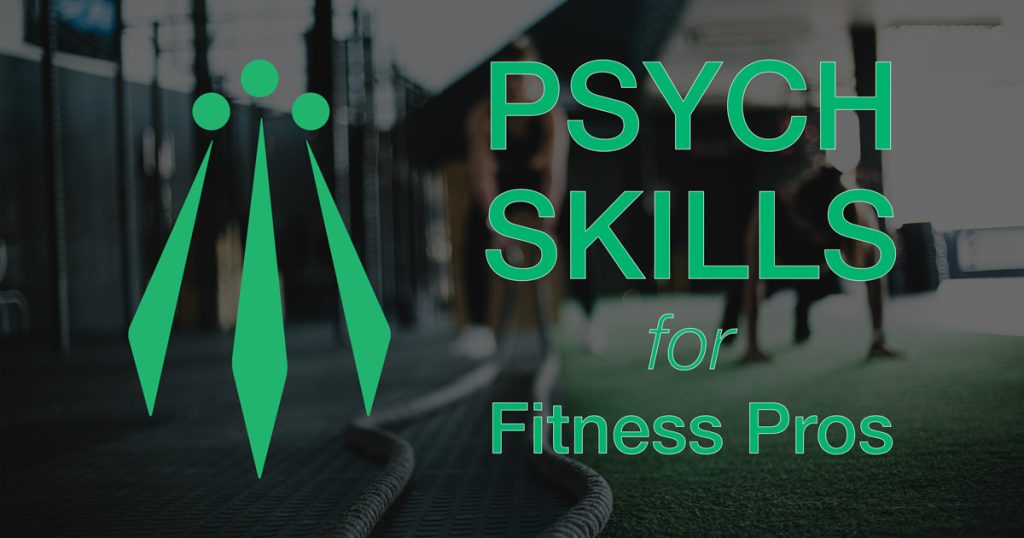Why the Soft Skills of Coaching Matter
Which is the more valuable skill to have as a coach or personal trainer:
- The Nuts & Bolts (I.e., turning people into deadlifting Terminators)?
- The Soft Skills (I.e., fostering “connection” with clients/athletes)?
- Biceps (I.e., biceps)?
Okay, taking biceps out of the conversation (because that’s the right answer), I think both – nuts & bolts and soft skills – are equally important skills to have as a fitness professional. It’s silly to suggest one is better or more robust of a skill to possess over the other.
However, the soft skills is something I want to hone in on today.

Copyright: 578foot / 123RF Stock Photo
Why the Soft Skills of Coaching Matter
The most obvious question out of the gate is:
“What are the nuts & bolts and what are the soft skills of coaching?”
Nuts & Bolts: Anything under the umbrella of assessment, program design, anatomy, technical understanding of exercise technique, or otherwise being able to execute a well-designed program effectively and without causing harm.
Soft Skills: The ability to communicate in a way that makes the athlete/client feel understood, supported, and excited.
This can include but is not limited to…exhibiting empathy, having time management skills, understanding the nuances and stages of motivation (intrinsic vs. extrinsic for example), being an attentive/active listener, as well not being afraid to admit that Notting Hill is one of your favorite movies of all time.
Come at me, Bro!
Why am I even bothering bringing this up or going out of my way to make a distinction?
Well, the impetus stems from a Tweet I saw recently from another coach in the industry (who, admittedly, I don’t know well or have any relationship with):
I’m paraphrasing:
“All I see nowadays are people referring to the ‘soft skills’ of coaching.
Lame!
When did this become a thing? When did knowing how to write effective programming and then executing that programming not take precedence?
Just get your clients squatting.
#creatine.”
This is bull to the shit at best, and a woefully narrow-minded train of thought at worst.
Talk about lame.
If all it took to be a great and effective coach was knowing how to breakdown squat technique or being able to distinguish an acetabulum from an asshole (both of which, mind you, are important) we’d have a bunch of Brett Bartholemews, Nick Winklemans, Erica Sutters, Mark Fishers, and Molly Galbraiths walking around.
Effective coaching is a teeter-totter.
On one end you have the technical and more hands-on component(s), and on the other you have the you’re-not-working-with-robots-but-human-beings-component(s).
The idea isn’t to balance the two of course. A non-moving, stagnant, completely horizontal teeter-totter is never the goal, or that fun.
Conversely, we also don’t want a scenario where one end overwhelms or dominates the other. One end of the teeter-totter shouldn’t be cemented to the ground indefinitely.
That’s not fun either.
Think of it this way: Every individual will vary in terms of the amount of each “end” they need/require on a weekly basis (if not daily) in order to help them be successful.
Yes, writing coherent, well-thought out programs matching sets, reps, loads, and exercises to the needs, goals, and ability level of every client is important. As is being able effectively coach those programs so people don’t hurt themselves.
But equally as important is understanding you’re not Leonidas leading 300 Spartan soldiers into battle.
Clients are intimidated by the weight room, sleep deprived, have sick kids, are stressed out, maybe have marital issues at home, lack motivation, or, I don’t know, have a boss that’s a douche to the douchiest degree and keeps them late all the time.
All of the above can affect one’s motivation and willingness to workout.
Coaching isn’t just about telling someone to suck it up and deadlift.
Every individual will vary in terms of what end of the teeter-totter will need to be prioritized in order to keep the darn thing moving both up AND down.
For some it will indeed be the more tactical, hands-on elements of coaching. For others it’ll come down to having a simple, human conversation with them.
And this fluctuates all…the…time.
A good, effective coach understands the teeter-totter should always be moving.
Psych Skills for Fitness Pros
If you’re interested in going a bit further down the rabbit hole on this topic be sure to check out Dr. Lisa Lewis’s latest resource, Psych Skills for Fitness Pros.
It’s the only resource out there specifically catered to personal trainers, strength & nutrition coaches, and manual therapists to help them develop better communication and motivational skills.
You can study at your own pace at home and can also earn continuing education credits via the NSCA and NASM. It’s currently on sale at $100 off the regular price, but it only lasts through this weekend.
So hurry!
Check it out —-> HERE
The post Why the Soft Skills of Coaching Matter appeared first on Tony Gentilcore.




No comments